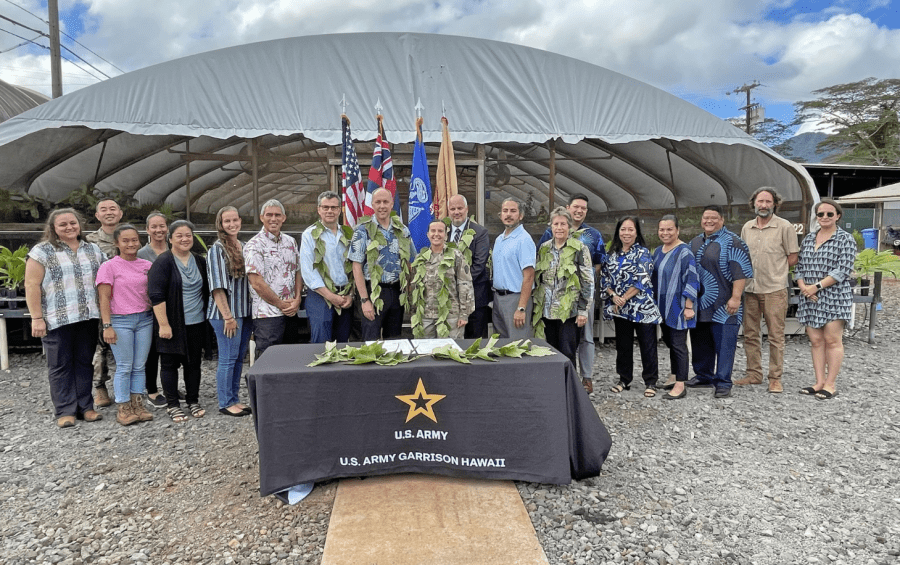HONOLULU (KHON2) — The University of Hawaiʻi and the U.S. Army Garrison Hawaiʻi signed an Intergovernmental Support Agreement on Sept. 16 at the Schofield Barracks Seed Lab, looking to expand environmentally-conscious practices on Army-leased land.
UH and the Army are no strangers in collaboration — since 1995, the two organizations have worked together through the Army Natural Resources Program Oʻahu, where researchers support conservation and eco-friendly initiatives at military installations and training grounds.
“By tapping into UH’s world-class expertise in environmental science and resource management, we enhance our operational readiness while safeguarding Hawaiʻi’s unique ecosystems for future generations,” said Col. Rachel Sullivan, U.S. Army Garrison Hawaiʻi commander. “This collaboration not only bolsters the Army’s ability to train and deploy forces under sustainable practices, but it also creates opportunities for workforce development, inspiring students and researches to become stewards of these islands.”
For Suzanne Case, the director of UH’s Office of Land and Ocean Conservation futures, it is the university’s kuleana to ensure the environmental success of all parts of the ʻāina.
“The University of Hawaiʻi has the experience and expertise, and also the responsibility to our island home, to help ensure the very best education, talent and research in natural research management and environmental stewardship applied to military lands in Hawaiʻi,” Case said. “This expanded partnership is both an opportunity and a kuleana that we take seriously.”
According to UH, the newly signed agreement not only strengthens current ties between the university and the U.S. Department of Defense, but also expands opportunities to improve environmental conservation.
This comes at a time when the military is fighting to maintain its land leases throughout the islands, with its Environmental Impact Statements, a key part in renewing its leases, repeatedly denied by the state Board of Land and Natural Resources.
The Army’s lease on their lands is up in 2029, with their leases spanning multiple islands.
On Hawaiʻi Island, the board had denied the military’s Environmental Impact Statement to retain training land at a May hearing, saying that they did not provide adequate environmental information necessary to maintain their lease.
In June, their work to maintain their Oʻahu land leases were denied, with the board saying that the military had failed to provide adequate information on cultural and biological resources, as well as groundwater contamination.
In June and August, Schofield Barracks saw brushfires that lasted multiple days in both instances.
The board’s hearings regarding the military leases have been met with thousands of public testimony in the form of public comment and written testimony, with the meetings regularly turning emotional.
Despite any accusations from the Board of Land and Natural Resources saying the military does not provide adequate environmental information, UH Interim Vice President for Research and Innovation Chad Walton looks forward to ensuring the conservation of military-leased lands.
“This partnership underscores the University of Hawaiʻi’s role as a trusted partner in conservation and environmental stewardship,” Walton said. “Through this agreement, we can apply UH expertise in environmental science and resource management to support the Army’s mission, while creating new, real-world career and workforce development opportunities in environmental stewardship for our faculty, staff and students.”
